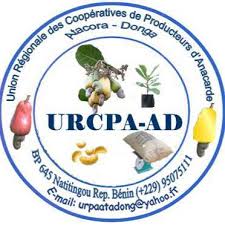PESoC - Promotion of Youth Entrepreneurship and Support for Cashew Production - Projet clôturé
Cashew nuts are one of Benin’s major cash crops, employing 200,000 small-scale producers. The sector offers enormous entrepreneurial opportunities for producers, processors, young people and women who want to seize these opportunities. However, the crop has a low yield and access to finance for growers remains fairly difficult. What’s more, producers’ organisations are not sufficiently organised or equipped to deal with the needs and constraints generated by this sector. The PESoC project therefore aims to respond to all these constraints in order to strengthen the cashew nut sector.
The PESoC project promotes a comprehensive and integrated approach to family farming in order to strengthen the value chain, including cashew production in the Atacora department.
The project will focus on facilitating :
the development, by young men and women at the Lycée Technique Agricole (LTA) in Natitingou, of entrepreneurial initiatives that create added value and gradually strengthen their autonomy;
support for diversification of production and technical and organisational support for cashew nut producer groups to improve their economic situation and the quality of cashew nuts produced in the communes of Toucountouna and Natitingou;
a process integrating North-South exchanges, to analyse, enrich and capitalise on the experience and knowledge developed as part of the project.
Discover the final results of the project in this video:
Visible, high-impact results
Thanks to the PESoC project:
- 50 young people from the Lycée Technique Agricole in Natitingou were trained in agricultural entrepreneurship and agro-ecology.
- Together, they created 5 microfranchises.
- 17 Village Savings and Credit Associations have been set up and 362 producers have been trained in their operation.
- 500 producers have benefited from legume seeds. In addition, 14,000 seedlings were made available to them, covering an area of 140 hectares.
“After working under a microfranchise, I set up my own business producing basil, okra, cabbage, lettuce and chilli peppers. One of the big challenges for an entrepreneur is knowing how to sell your products on the market. To do this, we have been trained in how to find customers, how to manage them, and how to promote our products. The production activities on my site enable me to support myself and pay for my sisters’ apprenticeship and schooling”.
Jules Kouagou, PESoC project participant
At the microfranchise, we benefited from a range of equipment that enabled us to process the cashew nuts into buttered cashews. We also made roasted cashews. We also made fonio-based biscuits that we combined with almonds and cashews. Thanks to the various training courses we’ve received, we’ve been able to redefine our goals in terms of entrepreneurship. Some of those who have finished secondary school are involved in livestock farming, others in market gardening, and I’m involved in food processing and the marketing of local produce.
Régina Yessinou, participant in the PESoC project
Summary
Duration of the project
3 years (2020 to 2022)
Project budget
183 817 €
Operational partners
Lycée technique de Natitingou, Enabel and Union Régionale des Coopératives de Producteurs d’Anacarde de l’Atacora et de la Donga (URCPA-AD)
Financial partner
Project carried out with the support of the Collibri Foundation
Projet beneficiaries
The project will directly benefit 60 young men and women from the Lycée Technique Agricole in Natitingou and 15 cashew nut producer cooperatives.
Intervention areas
Communes of Natitingou and Toucountouna (Department of Atacora, north-west Benin).
Using digital technology to enhance young people’s civic engagement projects – why and how to have a digital intercultural experience? – Guide of good practices
- Documents de capitalisation
- Outils pédagogiques
Intercutural and digital experience, essential levers for youth engagement? – Study
Report survey on youth’s intercultural and digital practices – Project Connexion·s
- Capitalisation documents
Agroecology, participatory processes and rights. Experiences with peasant families and communities in Peru and Bolivia
- Articles


